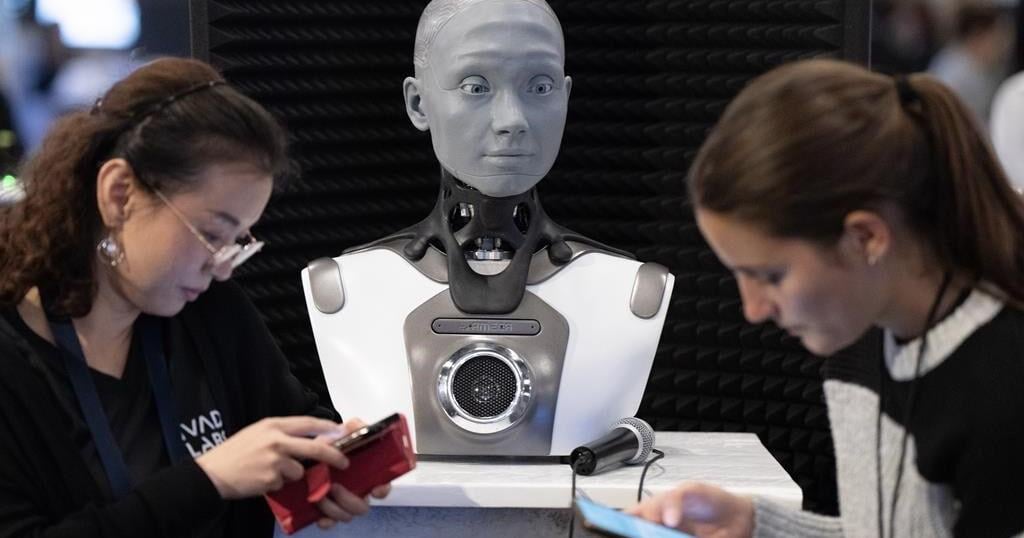OTTAWA – The Federal Court of Canada is being asked to declare that only humans — and not artificial intelligence — can be considered authors under Canada’s copyright law.
It’s the first court case in the country testing how the Copyright Act treats artificially generated content, like the text, images and videos created by systems such as ChatGPT.
David Fewer, director and general counsel at the University of Ottawa’s Samuelson-Glushko Canadian Internet Policy and Public Interest Clinic, says one of the aims of the clinic’s application is to lay “down in bedrock” that only humans are authors under the law.
The time to do that is now, given the volume of AI-generated content that’s being produced, Fewer said.
AI and copyright are at an inflection point, and we’re at the start of a wave of content “being put before our eyes that was generated by an AI and not by a human,” he said.
“It’s important at this point, just before this stuff enters the commercial zone in a really serious way, that we get rules down.”
Copyright law grants humans powerful rights, Fewer argued, and it’s important that they don’t get extended to “things that aren’t human, on things that don’t need that incentive scheme, and don’t merit the reward that copyright bestows on authors.”
The case challenges a registration made two years ago by an intellectual property lawyer from India. Ankit Sahni used AI to combine his own photo of a sunset with Vincent van Gogh’s The Starry Night painting, the court application says.
Sahni then tried to register the resulting image, titled “Suryast,” in copyright registries around the world. In December, the United States Copyright Review Board refused to register it. Its status is unclear in India.
The application says that in Canada, where the Canadian Intellectual Property Office grants copyright applications instantaneously and without verification, “Suryast” was granted copyright registration in 2021.
A spokesperson for Innovation Canada, where the intellectual property office is housed, said the system is set up so that the courts determine authorship.
“A person who believes a work has been registered in contravention with the Copyright Act can make an application to the Federal Court, which can in turn make an order to expunge from the register an entry if it is an appropriate remedy.”
The spokesperson said the intellectual property office “takes no position in relation to these matters.”
The India-based law firm listed on the court documents under Sahni’s name did not respond to a request for comment by deadline.
The Canadian Intellectual Property Office registration set a precedent that the office accepts AI authorship and has “led to Canada gaining publicity as one of the only jurisdictions in the world recognizing copyright in works ‘authored’ by an AI,” the application argues.
That’s one of the issues currently under consideration by the federal government, which is in the process of deciding how the Copyright Act should treat artificial intelligence.
The question of AI authorship was a central one in a recent consultation on AI and copyright, in which the government said it was open to considering different approaches.
That included both clarifying that copyright protection applies only to human-created works, and an approach that “could mean that AI-generated works receive similar copyright protection as works created by humans.”
In that consultation, Canadian creators and publishers asked Ottawa to do something about the unauthorized and usually unreported use of their content to train generative artificial intelligence systems.
Unlike in the United States, which has seen numerous lawsuits launched, copyright holders in Canada have so far shied away from challenging that use in the courts.
Fewer called that surprising.
“It may be that the big stakeholders in Canada are waiting to see if Parliament is going to do anything with the consultations that it’s recently held,” or that they may have decided pursuing licensing schemes is a better approach, he suggested.
This report by The Canadian Press was first published July 13, 2024.

























